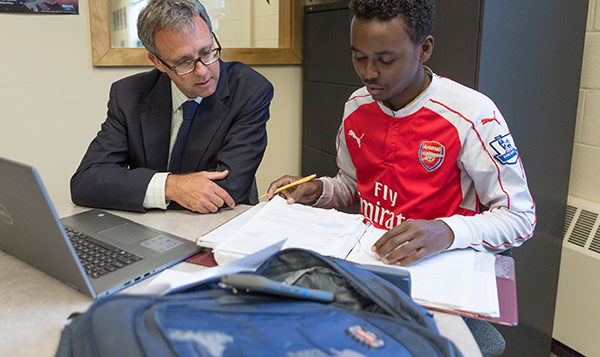Getting Ready for College
You may be the first person in your family to attend college or may have attended college in a different country, but are finding the options and processes are very different in the United States. Regardless of your starting point, here are a few things to keep in mind.
Types of Institutions
There are many types of colleges and universities in the United States. Each has its own purpose and funding and certain schools may meet your needs better than others.
Two-Year versus Four-Year Colleges
Two-year colleges: The most common two-year schools are community colleges. These schools typically offer two pathways: programs that are more applied and career-training focused that award certificates or associate degrees, or programs that are strictly academic and prepare students to transfer to a four-year school. Community colleges are public schools but there are also private two-year schools.
Four-year colleges and universities: These schools typically offer programs that take four years of full-time enrollment to complete and award bachelor’s degrees (though some also offer associate degrees). There are both public and private colleges and universities.
Public versus Private Colleges
Public colleges: These schools, often referred to as state schools, are supported in part by public funding. As a result, tuition rates are typically lower for residents of that state than for students from out-of-state.
Private colleges: These schools are privately funded and tuition rates are the same for in-state versus out-of-state students.
Admissions Criteria
Each college uses its own criteria when deciding whether or not to offer admission to a student. Most schools are going to ask for grades from current or previous schools, and some will also ask for SAT or ACT scores. Depending on a student’s major, if English is a second language, students may be asked to take the TOEFL test. Check with the college’s admissions office or website to learn more about that school’s admissions criteria.
Special Programs to Support College-Going
There are many federal programs designed to help first-generation college students and/or those from low-income families prepare for college. TRIO programs, which include Upward Bound, Talent Search, and Student Support Services are, available through many high schools and local colleges and universities.
Ready to take the next step?
Visit our Paying for College page for helpful tips on affording higher education.





